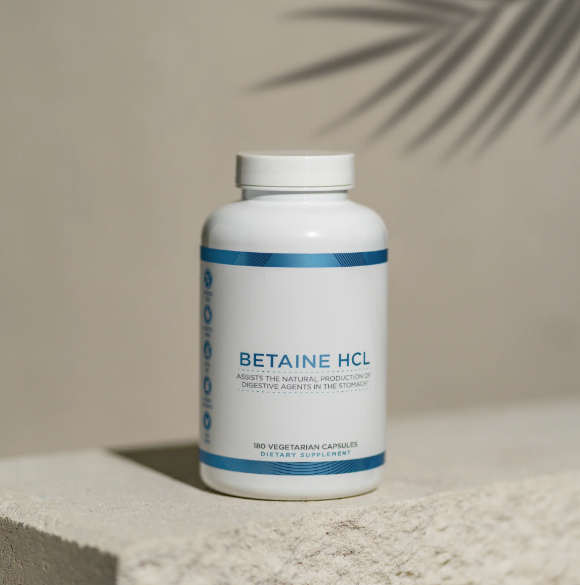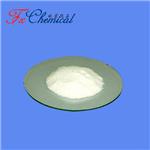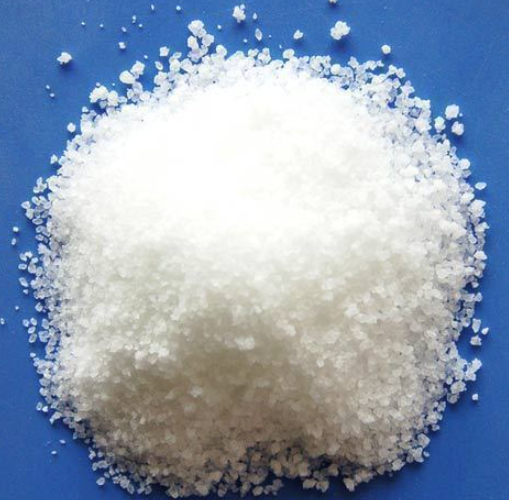The brief introduction of Betaine hydrochloride
Jul 8,2024
Introduction
Betaine HCl is the hydrochloride salt of betaine, a different but important supplemental compound. It is important to distinguish between betaine hydrochloride and betaine (or trimethylglycine (TMG)) as these agents have very different chemistry and clinical indications.

The non-acidic betaine is used primarily as a methyl donor, especially to treat homocystinuria (for which it is approved as a prescription drug). In contrast, betaine HCl readily releases H+ in an aqueous environment (approximately 0.65 mmol/100 mg). Confusion between these two compounds is common, even noted recently in a medication error report. Because betaine HCl readily donates H+ in an aqueous environment, it is essential that betaine HCl supplements are in the form of capsules or tablets when ingested. Betaine HCl is most often measured in milligrams; however, some recommendations still use "grains" to measure this compound. One grain of betaine HCl is equal to 65 mg.
Uses
Betaine hydrochloride has an exciting history. Betaine hydrochloride was included in over-the-counter (OTC) products as a "stomach acidifier and digestive aid." But a federal law that went into effect in 1993 banned betaine hydrochloride from use in OTC products because there was not enough evidence to classify it "generally recognized as safe and effective." Betaine hydrochloride is now available only as a dietary supplement whose purity and strength vary.
Betaine hydrochloride is also used to treat abnormally low levels of potassium (hypokalemia), high levels of the compound homocysteine in the blood, hay fever, "tired blood" (anemia), asthma, "hardening of the arteries" (atherosclerosis), yeast infections, diarrhea, food allergies, gallstones, inner ear infections, rheumatoid arthritis (RA), and thyroid disorders. It is also used to protect the liver.
Do not confuse betaine hydrochloride with betaine anhydrous. Use only the FDA-approved betaine anhydrous product to treat high levels of homocysteine in the urine (homocystinuria). This is a symptom of some rare genetic diseases.
Side effects
Betaine hydrochloride is possibly safe when taken as a single dose. There isn't enough information to know if betaine hydrochloride is safe when taken in multiple doses. It might cause heartburn.
References:
[1] THOMAS G GUILLIAMS L E D. Meal-Time Supplementation with Betaine HCl for Functional Hypochlorhydria: What is the Evidence?[C]//19 1. 2020.
- Related articles
- Related Qustion
- Betaine Hydrochloride: From Physiological Roles to Safety Evaluations Mar 24, 2025
Betaine hydrochloride is endogenously synthesized through the metabolism of choline or exogenously consumed through dietary intake.
Supplementation with pyridoxal 5'-phosphate monohydrate can synthesize neurotransmitters such as dopamine and serotonin, maintaining a healthy nervous system.....
Nov 4,2025Biochemical EngineeringAmmonium chloride is usually needed to activate MDH assays with artificial electron acceptors. It acts as an activator at low concentrations by increasing Vmax, while an inhibitory effect can be observed at higher concentrations.....
Jul 8,2024Food AdditivesBetaine hydrochloride
590-46-5You may like
Betaine hydrochloride manufacturers
- Betaine chloride
-

- $42.00 / 500mg
- 2025-12-16
- CAS:590-46-5
- Min. Order:
- Purity: 99.98%
- Supply Ability: 10g
- Betaine chloride
-

- $42.00 / 500mg
- 2025-12-16
- CAS:590-46-5
- Min. Order:
- Purity: 99.98%
- Supply Ability: 10g
- Betaine hydrochloride
-

- $0.00 / 1kg
- 2025-12-16
- CAS:590-46-5
- Min. Order: 1kg
- Purity: 99.74%
- Supply Ability: 20mt






